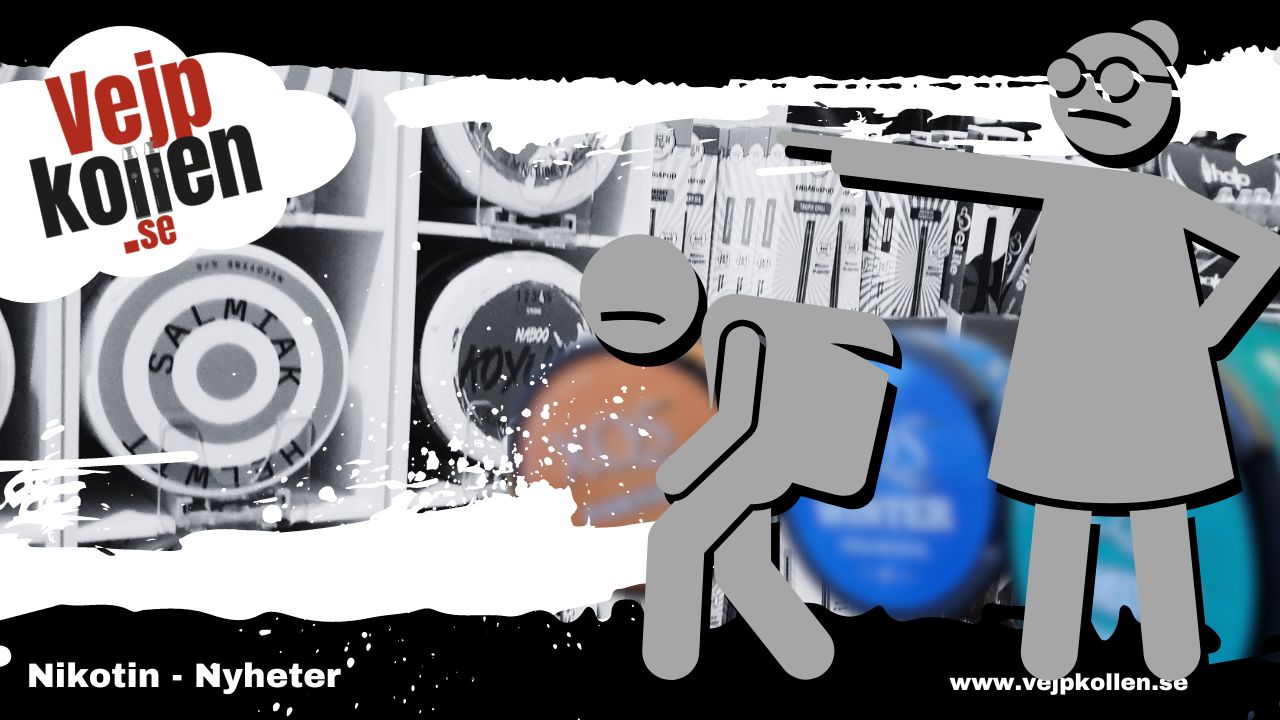Banning the use of various nicotine products during school hours would be impossible to control. This is the conclusion of several consultation bodies in their responses to the report "A safe childhood without nicotine, alcohol and nitrous oxide". According to the Swedish Association of Local Authorities and Regions, a ban will cause unnecessary conflicts and also threatens to impair teaching.
Several respondents are critical of the proposal to ban the use of nicotine during school hours for secondary school pupils. According to the investigator Inga-Lill Askersjö the use of white snus, for example, has become too visible in schools, and since the current strategy for nicotine issues is to reduce total use, a total ban is justified. The proposal is now out for consultation before the issue is taken up in Parliament.
"Concentrate on teaching"
But the ban is being strongly criticised, not least by the organisation Almega Education and Training (formerly the National Association of Independent Schools), which argues that a ban on nicotine use during school hours is the wrong way to go.
"The main mission of schools is to provide students with a good quality education and training. This is usually referred to as a 'safety factor', where a good education also strengthens pupils' self-esteem and provides better opportunities to say no to negative influences. It is better for school staff to concentrate on the main task, rather than having to increase their control over pupils both in and out of school, like trying to detect what kind of chewing gum pupils are using or whether a pupil has snuff in their mouth." writes Almega in its consultation response.
Different laws clash at secondary school
They are supported by the Swedish Association of Local Authorities and Regions (SKR), which says that a ban on nicotine during school hours would create difficult legal problems, not least for pupils who have turned eighteen.
"Some upper secondary school pupils are of age and the committee's proposal will be particularly difficult to enforce in relation to pupils of age; different legislation for different ages in the same school is not appropriate. It is also difficult to justify one legislation for a person when they are a pupil and another legislation when they are not." writes SKR in its consultation response.
Prohibition at the expense of education
SKR, like Almega, points out that a ban will have a negative impact on the quality of education.
"Pupils have the right to move around as they please in public places and school staff cannot decide what pupils do outside school, only give a reprimand. There is also no time for the teacher who is out looking to prepare the next lesson and the quality of teaching suffers. Not being able to fulfil the teaching mission is serious because a good education for pupils is a prerequisite for further studies or the possibility of getting a job, so the teaching mission of the school must not be reduced at the expense of other missions and tasks that are imposed on school staff." writes SKR
"Leads to conflict"
According to both Almega and SKR, work to prevent nicotine use is already part of school work and is currently working well. According to SKR, extending the current smoking ban to the use of all nicotine products is more likely to lead to setbacks in the form of unnecessary conflicts.
"Work is already being done on tobacco and nicotine and their harmful effects in schools through teaching, as these areas are included in the curriculum. Pupil health services also conduct regular health talks with each pupil, providing information and guidance on nicotine and tobacco, among other things. This works well in many schools and therefore SKR believes that using teachers' time and expertise for reprimands is not necessary. Reprimands can lead to conflicts between students and teachers and that teaching time is used to tell students." writes SKR.
Vejpkollen continuously follows the consultation responses received by the Ministry of Social Affairs regarding the investigation "A safe childhood without nicotine, alcohol and nitrous oxide". The consultation period ends on 30 August 2024.




